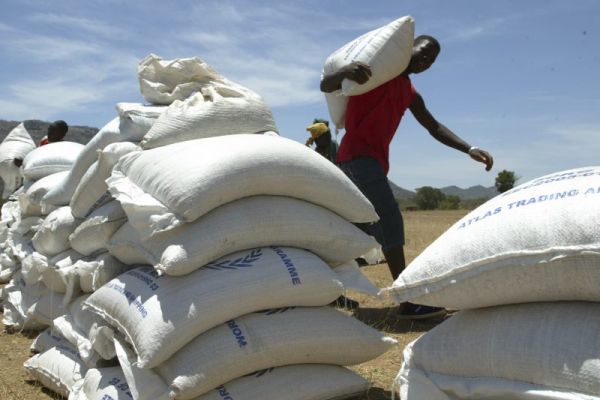Several Gwanda rural district councillors have proposed that beneficiaries of grain under the drought relief programme pay for transport as the government struggles to ferry the grain to affected communities.
The issue arose during a recent full council meeting where it was revealed that the council is struggling to find donors to transport relief grain from the Grain Marketing Board (GMB) to communities in need free of charge.
During the meeting, Gwanda District Coordinator Thulani Moyo highlighted challenges in securing donors to transport grain, as proposed by the government’s directive.
“On the social services side, we discussed the drought relief program. We received a letter from the Ministry indicating that the government has limited financial resources to support the transportation of drought relief grain from the GMB to the communities,” Moyo said.
“Our committee discovered difficulties in securing donors as proposed by the letter. Therefore, the committee recommends that the council lobby the program to revert to the previous system where beneficiaries paid a nominal fee to hire local transporters,” Moyo added.
Council Chairperson Councillor Mphathiswa Ncube said the shortage of transporters could result in some communities not receiving drought relief aid.
“The current directive is that everyone should receive grain with free transport. However, at the moment, we cannot secure free transport. Even if we do, it will only be for a certain percentage of communities. Others are likely to be affected and left out because there aren’t any transporters to deliver grain to them,” said Clr Ncube.
He proposed that beneficiaries contribute towards the transport costs.
“The grain is available at the GMB, but unless we find a solution, it won’t be delivered. Even the most vulnerable people should try to pay small amounts for transport rather than wait for transport that we can’t get. This should be a directive for councillors and MPs to help carry food to the people,” Ncube said.
Councillor Ncube emphasized the urgency of finding a solution, stating, “While the grain is there, the biggest challenge is transporting it to deliver it.”
A representative from the GMB who attended the meeting confirmed that while there is an adequate supply of grain, the lack of transportation means that distribution remains a challenge.
“Currently, we don’t have grain for sale. We only have grain for social welfare programs, and the balance we currently have is 1,000 tons, which is enough to cover three months,” she said.
Meanwhile, Chief Mathema called for a comprehensive report on the matter, stressing the importance of transparency and urgency in addressing food scarcity.
“As far as I know, everyone in this district is hungry. Honestly, not even one household should be left out if we are serious as a country. As chiefs, our people are going to die. Who are we going to rule over? Something must be done honestly. It’s better to pause road construction and other projects for people to have food. Our priority should be centred on food. People are hungry out there, and we are going to lose people due to hunger,” said Mathema.
He urged the GMB representative to produce a comprehensive report, “because honestly speaking, people are hungry. Let’s not lie to each other; people have nothing to eat.”
Chief Mathema also highlighted the need for adequate feeding programs in schools, adding the importance of providing balanced meals with culturally appropriate accompaniments.
“The feeding program in schools should also be proper. I don’t think it makes sense for children to be given only maize and for parents to be told to supply relish. Please do something that reflects an African setting,” he said.
He said it is crucial to integrate livestock feeding programs into relief efforts.
“You should also look into livestock. As a district, our livelihoods are centred around livestock. They should also be considered in our planning. What is going to happen with the livestock feeding programs?” Chief Mathema concluded.

